Søren Kierkegaard and Friedrich Nietzsche are valued teachers and they generated many of the ideas bumping into each other in the culture today.
Søren Kierkegaard was a Danish philosopher, theologian, and social critic who is known for his contributions to the field of existentialism. He believed that the individual’s relationship to God was the most important aspect of human life, and that the search for meaning and purpose was an essential part of the human experience. Kierkegaard argued that the traditional institutions of society, such as the church and the state, were inadequate for helping individuals to find meaning and fulfillment in life, and he called for a return to a more personal and inward-looking approach to faith and spirituality.
Friedrich Nietzsche was a German philosopher who is known for his critiques of traditional values and his celebration of the individual. He argued that traditional morality, with its emphasis on self-denial and restraint, was destructive to the human spirit and hindered the development of truly great individuals. Nietzsche believed that people should embrace their own desires and passions, and strive to become what he called “overmen,” or individuals who had fully realized their own potential and lived life to the fullest.
These two philosophers define authentic to me. Neither of them would have been comfortable in my Church or in my society, but I can’t escape how much I would love to host a cup of coffee with these two thinkers.
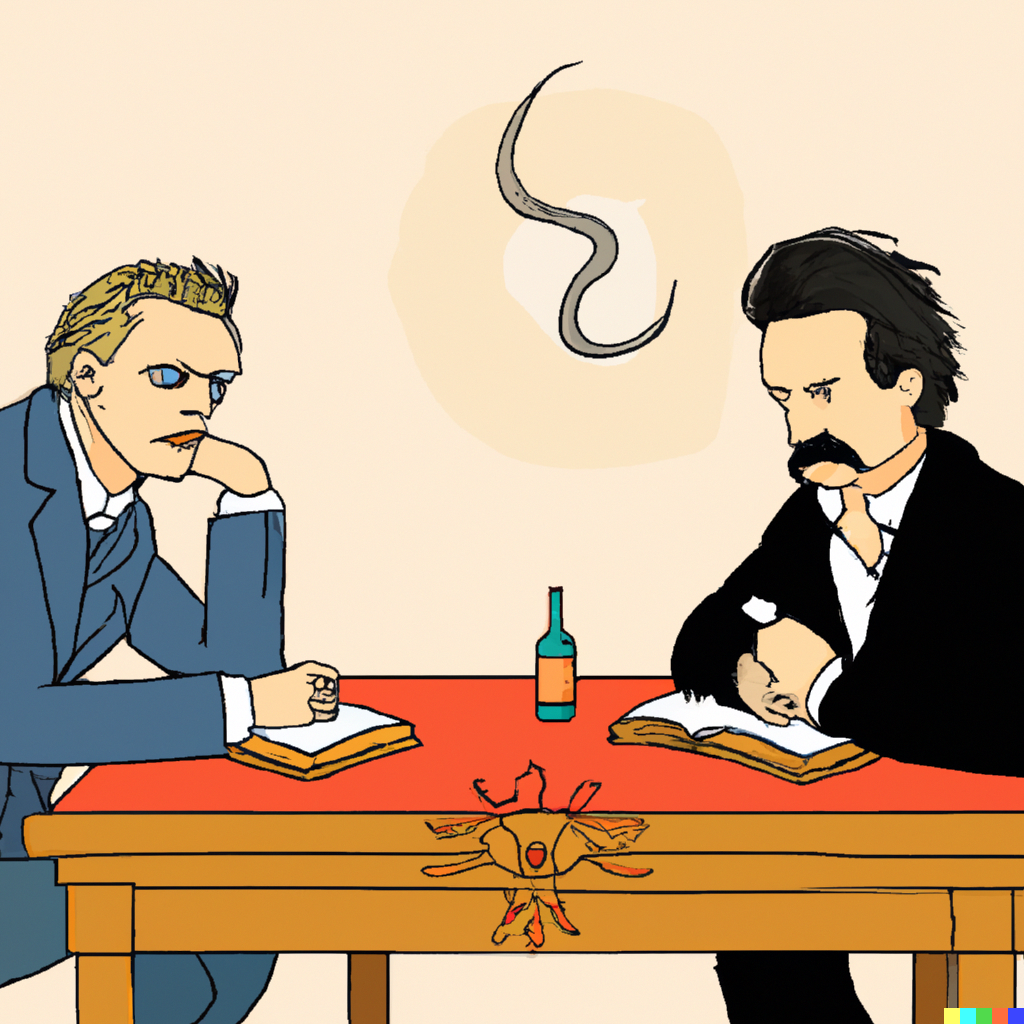
Authenticity is really hard because we can’t escape our obsession with status no matter how hard we try. It’s better to not think about status too much because focusing on it can compromise authenticity. Kierkegaard and Nietzsche are good to match up because they both were independent thinkers who didn’t care about others’ opinions, yet were deeply wounded by the world’s rejection.
One stark difference: Kierkegaard embraced faith, while Nietzsche rejected the idea of a greater meaning in life.
Both Kierkegaard and Nietzsche were obsessed with finding the truth, wherever that quest went, and were both deeply troubled by what they found and by the process of finding it.
Desiring truth not consistency is probably the hardest intellectual challenge and it can be a lonely and troubling journey. Since I know that I’m not wiser than the weight of history or the leaders of my faith community, I tend to side on tradition when I don’t understand things. Yet I strive to overcome the temptation to prioritize consistency in my beliefs over seeking new information that may challenge them. Consistency is a good default, but it can prevent us from fully understanding the world around us and making informed decisions. An open and certain mind is a rare thing and both do and don’t have one.
Nietzsche and Kierkegaard inspire me on this point. They were concerned with the nature of human existence and the meaning of life, and they both sought to fundamentally re-think the traditional Western philosophical tradition. This makes them good foils to consider what they might think about three significant developments in the modern world: the rise of populism, the decrease in organized religion, and the rise of artificial intelligence.
The Rise of Populism
Nietzsche and Kierkegaard were both critical of the values of the Enlightenment and the modern world, and they both argued that the modern world had lost touch with the deeper meanings and values of life. In this sense, they might both view the rise of populism with a certain degree of skepticism. Populism is often associated with a rejection of traditional political and social elites and a focus on the needs and concerns of ordinary people. Both Nietzsche and Kierkegaard would likely argue that this focus on the needs and desires of the masses can lead to a superficial and shallow understanding of the world, and they would both caution against a reliance on the “tyranny of the majority” as a guiding principle for society.
At the same time, however, both Nietzsche and Kierkegaard placed a strong emphasis on the importance of individuality and the need for individuals to be true to themselves and their own values. In this sense, they might both see the rise of populism as an opportunity for individuals to reclaim their own autonomy and agency, and to resist the homogenizing forces of modernity.
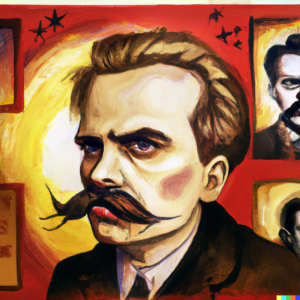
The Decrease in Organized Religion
Both Nietzsche and Kierkegaard were deeply concerned with the role of religion in human life, and they both grappled with the question of how individuals can find meaning and purpose in the absence of traditional religious beliefs. Nietzsche was highly critical of traditional Christianity and other monotheistic religions, and he is known for his arguments against the existence of God and his rejection of traditional moral values. He argued that individuals should create their own values and meaning rather than relying on traditional sources of authority.
Kierkegaard, on the other hand, was deeply religious and saw faith as a central aspect of human life. He argued that belief in God was not a matter of reason, but rather a matter of the heart, and he developed the concept of the “leap of faith” to describe the idea that individuals must make a leap of faith in order to truly believe in something.
In the modern world, we are seeing a decline in organized religion and a shift away from traditional religious beliefs. Nietzsche might view this trend as a positive development, as he rejected traditional religious beliefs and saw them as a source of oppression and illusion. Kierkegaard, on the other hand, might view the decline in organized religion with concern, as he saw faith as a central aspect of human life and argued that individuals need a sense of transcendence and meaning beyond the material world.
The Rise of Artificial Intelligence
In the 21st century, we are seeing a rapid development of artificial intelligence and the increasing integration of technology into all aspects of our lives. Nietzsche and Kierkegaard would likely have very different perspectives on the rise of artificial intelligence.
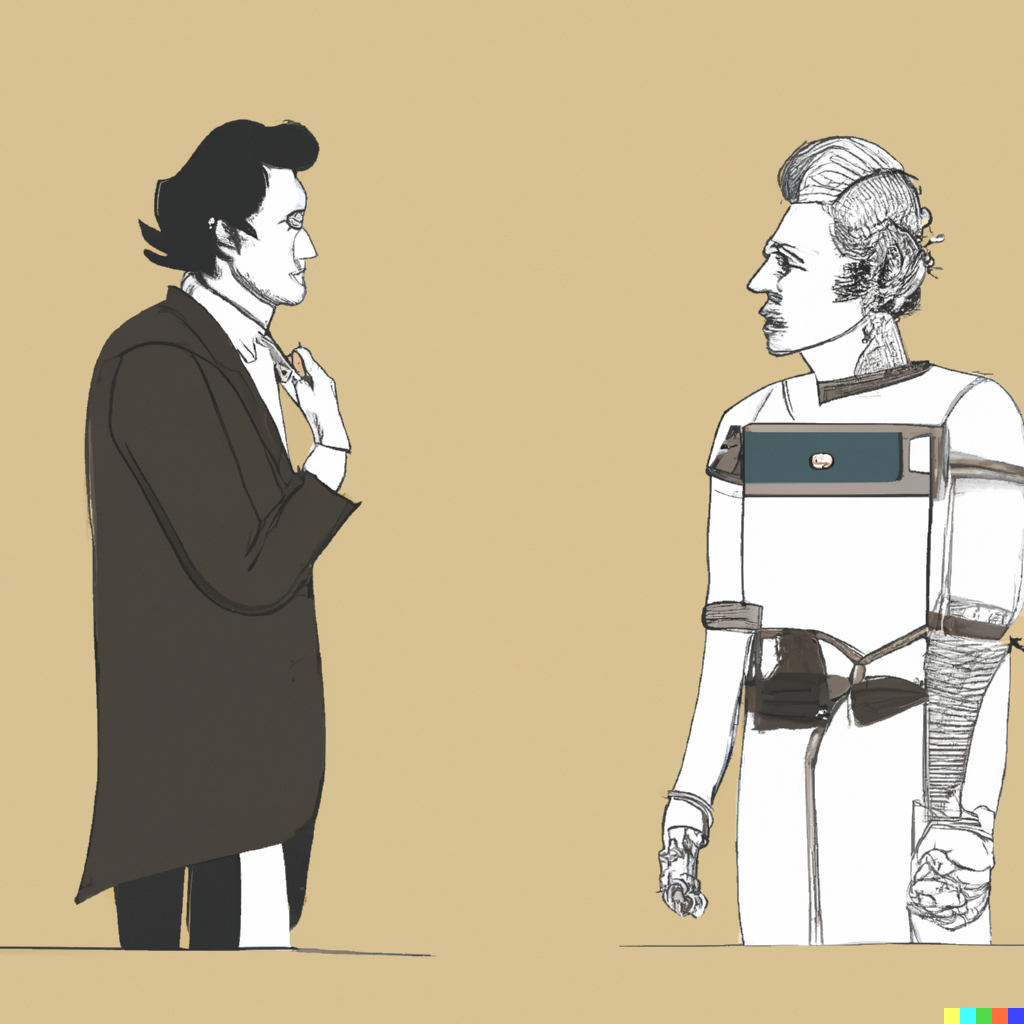
Nietzsche might view the development of artificial intelligence with a certain degree of skepticism, as he placed a strong emphasis on the value of human creativity and individuality. He might argue that the increasing reliance on artificial intelligence could lead to a dehumanization of society and a loss of the unique qualities that make humans special. But! Nietzsche was interested in the potential of technology to enhance human life and enable individuals to overcome their limitations, and he might have seen the development of artificial intelligence as a potential way to achieve this.
Kierkegaard, on the other hand, might have been more skeptical of the role of technology in society and could have seen it as a threat to human dignity and autonomy. He might have argued that the increasing reliance on technology was a symptom of a deeper spiritual malaise in modern society and could lead to a loss of meaning and purpose in life. (Good grief, how much I love Kierkegaard.)
Who Else?
All this had me thinking, what other pair might be an interesting lens to view society? And I think five other pairings would be super fun to meet up with:
Jean-Jacques Rousseau and John Locke
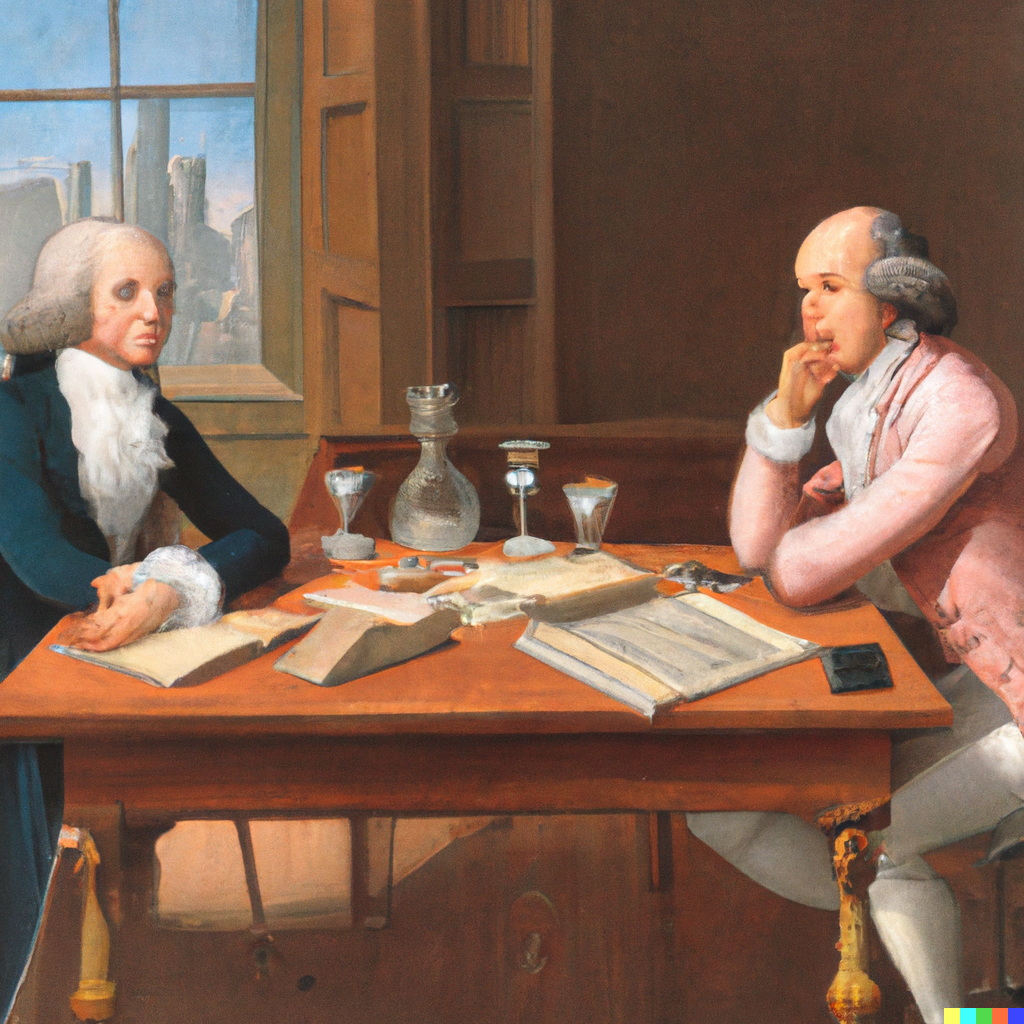
These two philosophers had very different views on the nature of the state and the role of the individual in society. Rousseau argued for the primacy of the common good and the need for the state to exert control over the lives of individuals, while Locke argued for the importance of individual rights and the need for limited government. Comparing these two philosophers could provide a useful framework for thinking about issues related to the balance between individual freedom and the role of the state in modern society.
Karl Marx and Adam Smith
These two philosophers had very different views on the nature of economic systems and the role of the state in regulating them. Marx argued for the abolition of private property and the need for a socialist economic system, while Smith argued for the importance of free markets and the role of self-interest in driving economic growth. Comparing these two philosophers could provide a useful framework for thinking about issues related to economic policy and the role of the state in the economy.
Michel Foucault and John Rawls
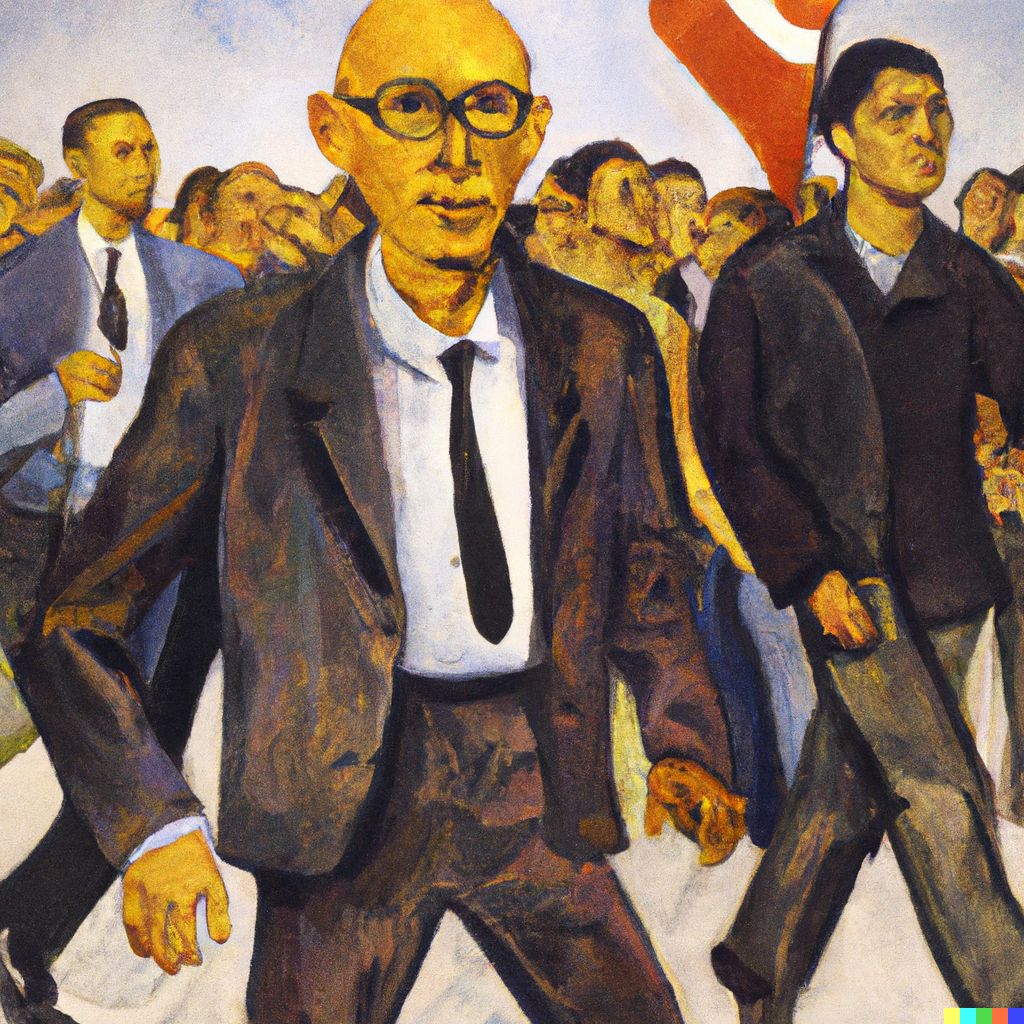
These two philosophers had very different views on the nature of justice and the foundations of moral and political theory. They pretty much define the camps in the American left today. Foucault argued that power relations are a fundamental aspect of society (#BLM, Woke!) and that justice is not an objective concept, while Rawls argued for the importance of a social contract based on fairness and equality (think Clinton/Blair). Comparing these two philosophers could provide a useful framework for thinking about issues related to social justice and the foundations of political theory.
Thomas Hobbes and John Locke
These two philosophers had very different views on the nature of the state and the role of the individual in society. Hobbes argued for the need for a strong, centralized state in order to maintain order and prevent anarchy, while Locke argued for the importance of individual rights and the need for limited government. Comparing these two philosophers could provide a useful framework for thinking about issues related to the balance between individual freedom and the role of the state in modern society.
Finally, Kant and Hegel!
Immanuel Kant, an 18th-century philosopher has had the same level of influence as Kierkegaard on me. I consider myself a Kantian. I love the idea that the moral worth of an action is determined by the motivation behind it, rather than the consequences that it produces. An action is considered morally right if it is done out of a sense of duty or respect for moral law, rather than as a means to achieve some other end or goal. Also, the moral law is universal and applies to all people, regardless of their individual circumstances or desires.
Kantian ethicists argue that we have a moral duty to treat others with respect and to always act in accordance with moral principles, even when it is difficult or inconvenient to do so. They believe that this is the only way to create a just and moral society, and that failure to live up to these standards can have serious consequences for individuals and for society as a whole.
Georg Wilhelm Friedrich Hegel, a 19th-century philosopher, would be a great contrast to Kant. Some specific areas of disagreement between the two philosophers include:
The nature of history and the role of reason: Kant argued that human reason was a universal and timeless principle, while Hegel argued that reason was an inherent part of the historical process and that the world was shaped by the interplay of opposing forces. Hegel used organic metaphors and language to describe the way in which history unfolds and develops over time. For example, he referred to the process of historical development as a “world-historical process” and described the different periods of history as “stages” in the development of human consciousness.
The nature of the state and the role of the individual: Kant argued for the importance of individual rights and the need for limited government, while Hegel argued for the primacy of the state and the idea that individuals should be subservient to the state.
The nature of knowledge and the foundations of moral and political theory: Kant argued for the importance of reason and the a priori principles that structure our experience, while Hegel argued that knowledge was a product of the historical process and that the ultimate goal of human development was the realization of the “Absolute.”
How fun it would be to pair all the philosophers mentioned above about up. They probably would find my company pretty boring, but it would be fun to tell them about the 1900s and answer their questions about what we believe today. Ah, well, I get to read their books, write this stuff up and, even better, talk to you about this stuff.

Leave a Reply